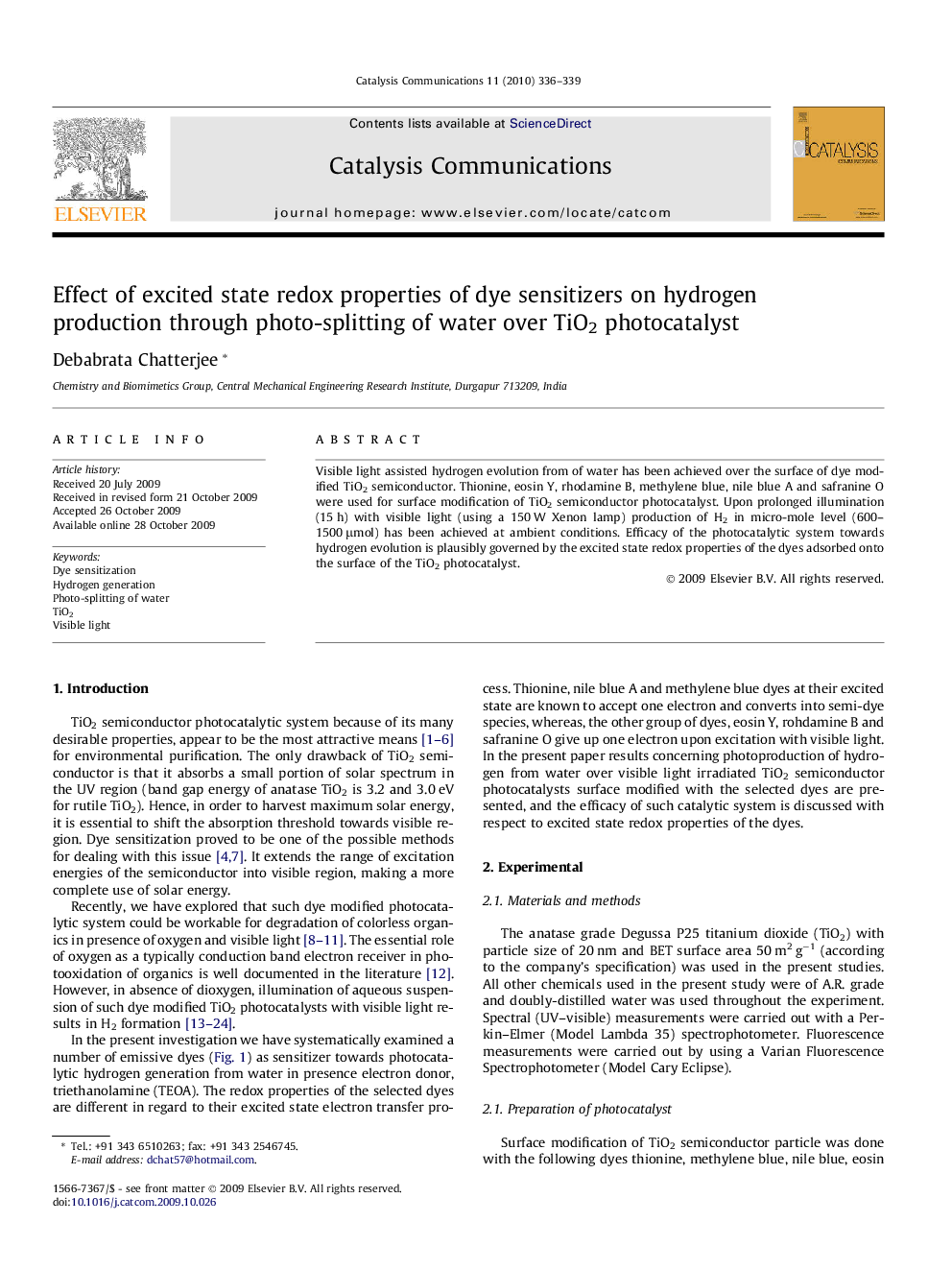| Article ID | Journal | Published Year | Pages | File Type |
|---|---|---|---|---|
| 51640 | Catalysis Communications | 2010 | 4 Pages |
Abstract
Visible light assisted hydrogen evolution from of water has been achieved over the surface of dye modified TiO2 semiconductor. Thionine, eosin Y, rhodamine B, methylene blue, nile blue A and safranine O were used for surface modification of TiO2 semiconductor photocatalyst. Upon prolonged illumination (15 h) with visible light (using a 150 W Xenon lamp) production of H2 in micro-mole level (600–1500 μmol) has been achieved at ambient conditions. Efficacy of the photocatalytic system towards hydrogen evolution is plausibly governed by the excited state redox properties of the dyes adsorbed onto the surface of the TiO2 photocatalyst.
Related Topics
Physical Sciences and Engineering
Chemical Engineering
Catalysis
Authors
Debabrata Chatterjee,
